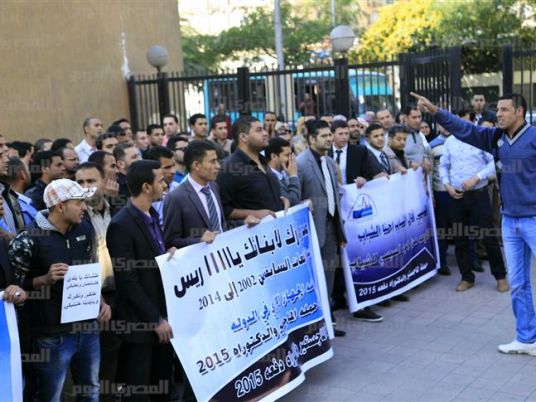
Egypt's cabinet decided to keep 800 square metres in the vicinity of vital facilities as a "safe zone," where no protests are allowed.
The decision, which was published in the official gazette on Thursday, states that protests are banned within 800 square metres near, inter alia, presidential headquarters, international organisations headquarters, foreign delegation offices, governmental and military facilities in Cairo; from all surrounding directions.
The list also included headquarters of courts, prosecutions, hospitals, airports, petroleum buildings, educational organisations, museums, among other vital facilities.
The decision comes few days ahead of the sixth anniversary of the 25 January uprising.
According to the official gazette, the decision is based on reviewing a presidential decree to regulate public assembly, and peaceful protests.
Moreover, the decision impugns any other conflicting decisions, and comes into effect on Friday.
ِArticle 73 of the Egyptian constitution allows citizens to peacefully assemble and protest, provided that they do not possess weapons, but with a prior notification.
On Wednesday the court or urgent matters decided to transfer protest location against Tiran, Sanafir demarcation agreement from the cabinet to Al-Fustat public park.
Former interim President Adli Mansour issued the protest law in 2013 to regulate peaceful assembly. The law has long been the epicentre of wide criticism by domestic and international human rights organisations which say it violates international standards for peaceful protests.
The law urges sending a notification three working days ahead of the protest date, and penalises any one who violates it with up to five years in prison. It also allows security forces to disperse protests.
A protest against the demarcation agreement was fiercely dispersed by security forces in early January in the vicinity of the press syndicate. Twelve of the protesters were detained for 15 days pending investigations.




